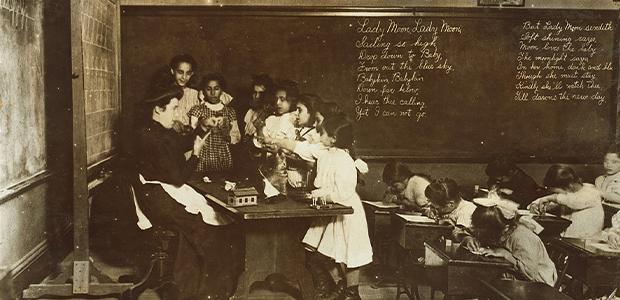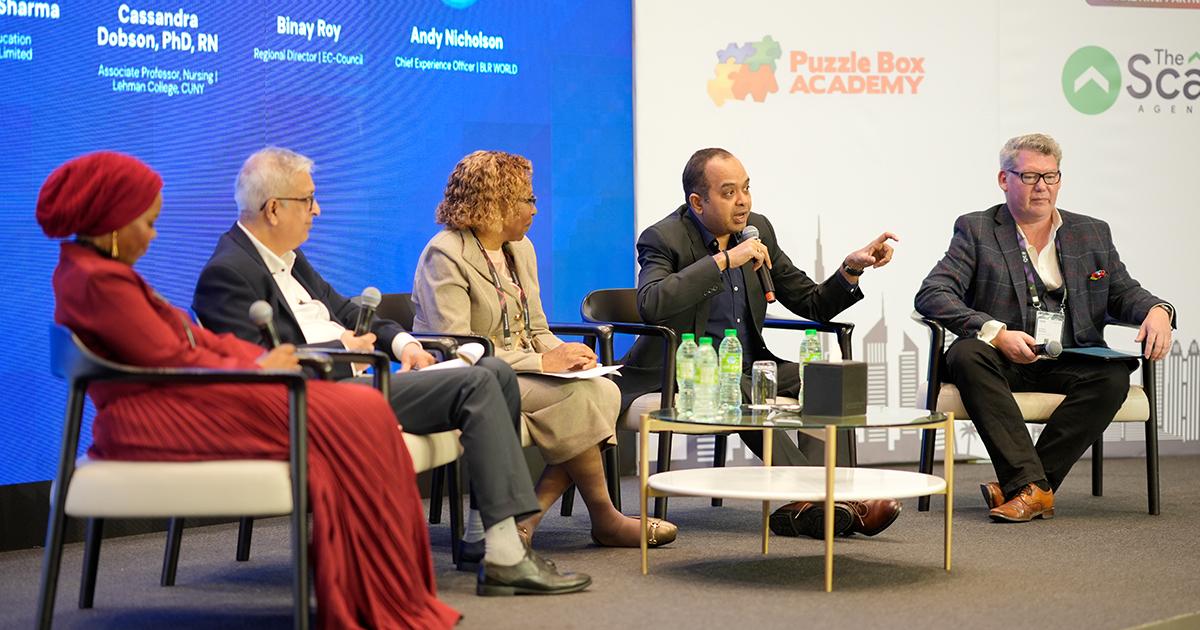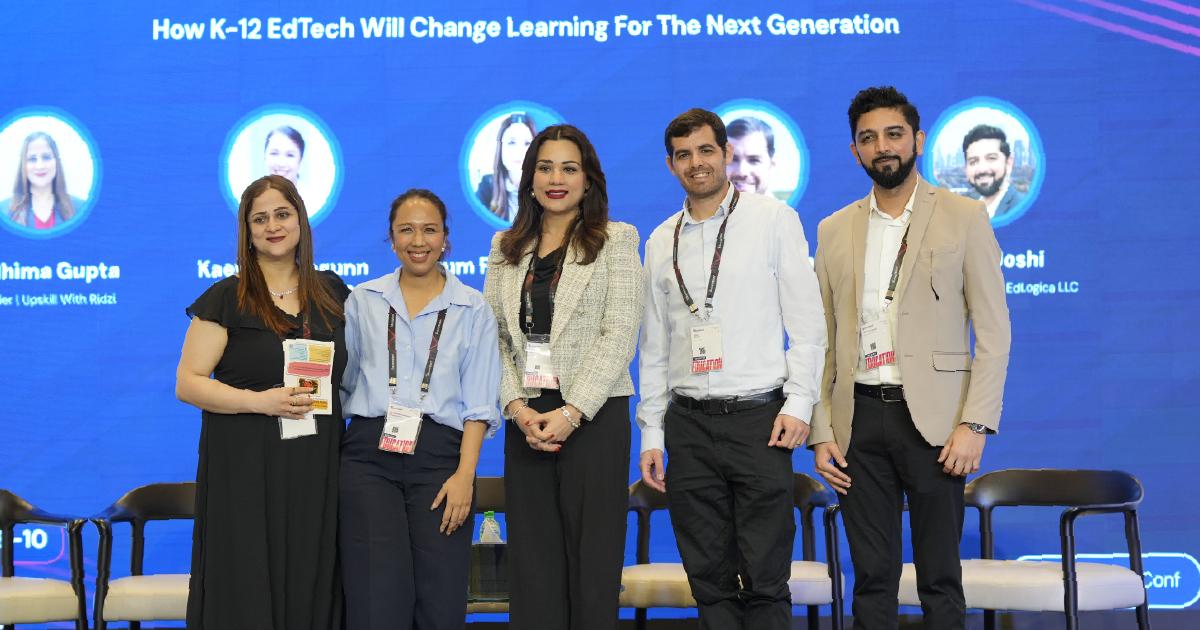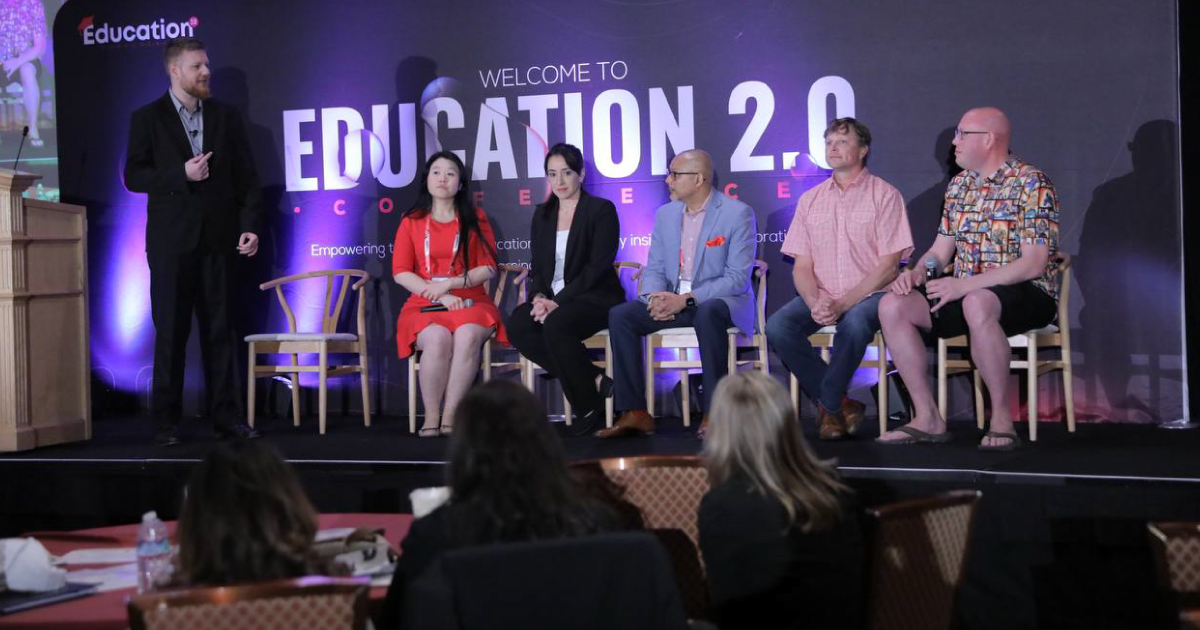Gone are the days of traditional education, punctuated solely by midterms, finals, and pop quizzes. Welcome to 2023, where the rhythm of learning dances to a new beat! As insights into the learning process advance, so does our perspective on assessments. Top education events coming up in 2024 will readily highlight the way education has been transforming in the past few years.
But why the buzz? Because modern education believes in nurturing - not just grading. Constant reviews don’t just gauge a student’s retention; they shape their understanding, molding them for future challenges. This revolutionary method ensures consistent feedback, bridging gaps in real-time, and ensuring no learner is left behind.
So, as we dive deep into the heart of educational events this year, let's redefine assessment!
Embrace the change. Because to shape the leaders of tomorrow, we must evolve today. Stay tuned as the Education 2.0 Conference delves into this exciting shift in our upcoming blog.
Welcome to the future of learning!

Diving Deep: Unraveling The Mystery Of Constant Reviews!
Ever wondered what's buzzing in the educational world right now? Enter the arena of constant reviews! No longer are we just sprinting to major milestones like term-end exams. Instead, the rhythm of education now dances to the tune of consistent, bite-sized feedback moments. From weekly reflections to insightful peer exchanges and engaging teacher-student dialogues, the essence of constant reviews is to always have a finger on the pulse of a student's progress.
Experts of the upcoming 2024 education conference, the Education 2.0 Conference, highlight that embracing this methodology promotes a growth mindset, enabling students to adapt, evolve, and refine their skills in real time. The power of frequent feedback not only illuminates a student's strengths and weaknesses but also empowers them to take charge of their learning trajectory. By bridging gaps promptly and celebrating small victories, we're crafting a future where education is truly tailored to individual needs and aspirations.

Cracks In The Pillars Of Old-School Grading
A seismic shift is happening in the education landscape. Leading education platforms like the Education 2.0 Conference have highlighted the disruption taking place in education and why it's necessary. The age-old tradition of periodic testing, with its focus on mindless memorization, is becoming increasingly outdated. Critics argue these methods fail to capture a student's true potential or holistic growth. Expected to be a trending subject in the top education events in 2024, such as the Education 2.0 Conference, experts shed light on how these systems often overlook creativity, critical thinking, and real-world problem-solving skills.
Instead, an emphasis on constant reviews and feedback can lead to deeper learning. It's evident - we need to shift our lens from outdated, one-dimensional tests to dynamic assessment techniques that truly mirror student development.

Benefits Of Constant Reviews
-
Tailored Learning Experiences
With regular feedback, educators can adapt their teaching methods to fit individual student needs better. If a student struggles with a particular topic, timely intervention can be provided. Alternatively, if a student excels, they can be given advanced materials to maintain their interest and enthusiasm.
-
Promotes Growth Mindset
Constant reviews nurture a growth mindset among students. They come to understand that learning is a continuous process, and mistakes are opportunities for growth rather than failures. This perspective promotes resilience and encourages students to embrace challenges with determination.
-
Enhances Reflection And Self-Awareness
Frequent check-ins force students to reflect on their progress, strengths, and areas of improvement. Over time, this cultivates a sense of self-awareness, making them proactive in seeking resources, asking questions, and setting personal learning goals.
-
Reduces Exam Stress
When assessments are spread out and integrated into the learning process, the immense pressure associated with major exams diminishes. Students experience less anxiety and can demonstrate their understanding in a more relaxed environment.
-
Real-Time Feedback
With constant reviews, feedback is immediate and relevant. This timeliness allows students to correct misconceptions, build upon their knowledge, and apply feedback before moving on to the next topic.

Mastering The Rhythm: Setting The Pace For Effective Constant Reviews
Navigating the dynamic landscape of business, feedback becomes our compass, guiding us toward excellence. Much like setting the rhythm in music, constant reviews help calibrate our actions and strategies. Let's explore how to fine-tune this essential instrument for optimum performance with strategies highlighted by experts of the upcoming 2024 education conferences, such as the Education 2.0 Conference.
-
Diversify Assessment Methods
Incorporate different forms of assessment such as oral presentations, projects, reflective journals, and peer reviews. This ensures all learning styles are catered to and provides a holistic view of student growth.
-
Use Technology
Digital platforms and learning management systems can facilitate ongoing assessments. For instance, quizzes can be administered online, and students can participate in discussion forums for peer feedback.
-
Encourage Student Autonomy
Empower students to take charge of their learning. Encourage them to set goals, seek out resources, and regularly reflect on their progress.
-
Ensure Constructive Feedback
When giving feedback, focus on actionable insights that guide students on how to improve. Celebrate their strengths and provide specific recommendations for areas of growth.
-
Open Lines Of Communication
Create an environment where students feel comfortable sharing their concerns, asking questions, and seeking clarity. Regular check-ins and open-door policies can help in promoting such an environment.

Empowering Tomorrow's Learners: Beyond Traditional Assessments
As our global landscape continually evolves and information becomes increasingly attainable, the essence of learning is not merely about knowledge acquisition. Instead, it's about how students harness, adapt, and expand upon this knowledge. Regular feedback positions students at the heart of their educational journey, guaranteeing that they're armed not only with facts but also with the capabilities to thrive in a fluid world.
Final Words
In conclusion, the redefinition of assessment through the lens of constant reviews underscores a broader shift in educational philosophy. It’s a move from standardization to personalization, from summative to formative, and from end goals to continuous growth. As educators and stakeholders in the future of learning, embracing this shift is paramount to cultivating environments where students don’t just succeed but truly thrive.


















